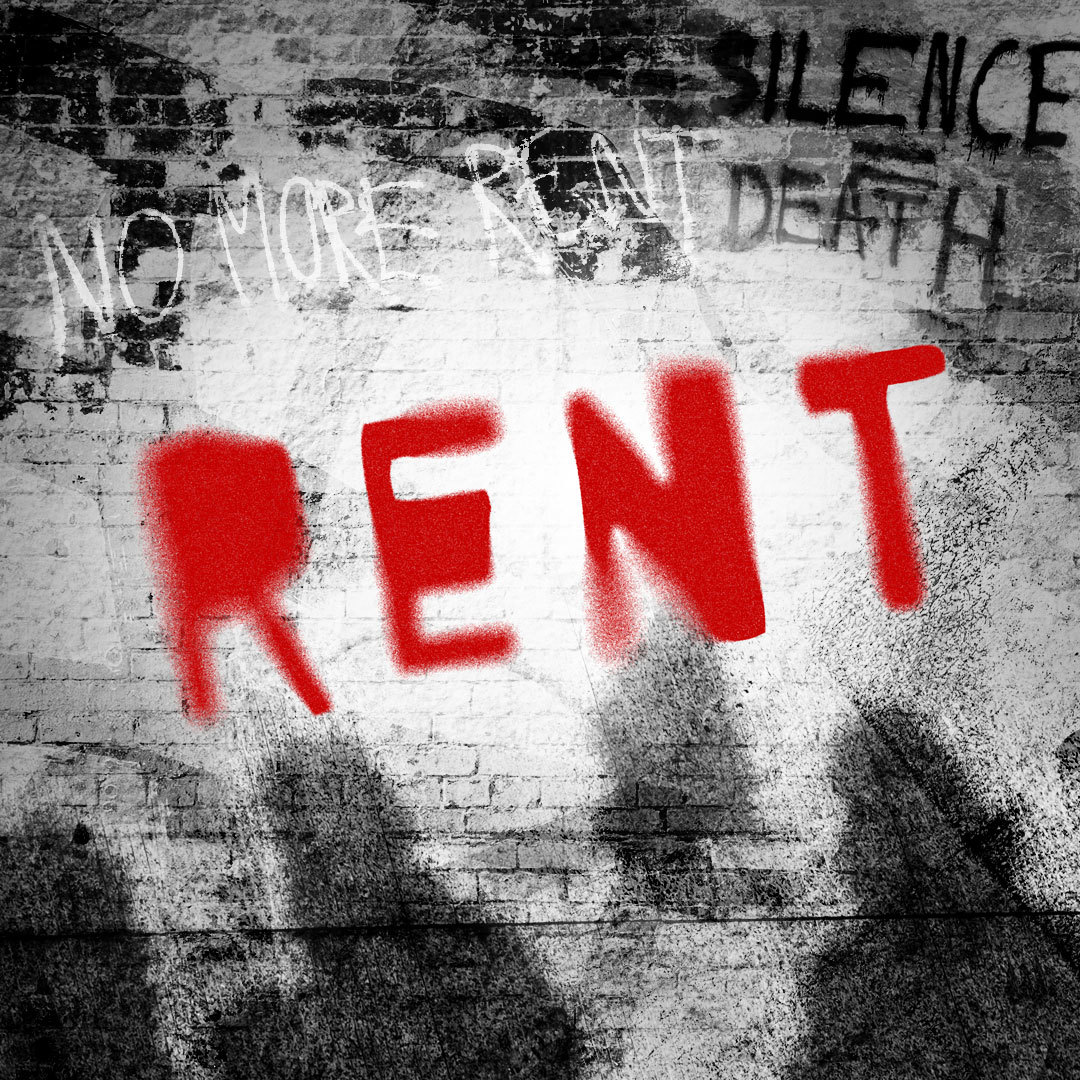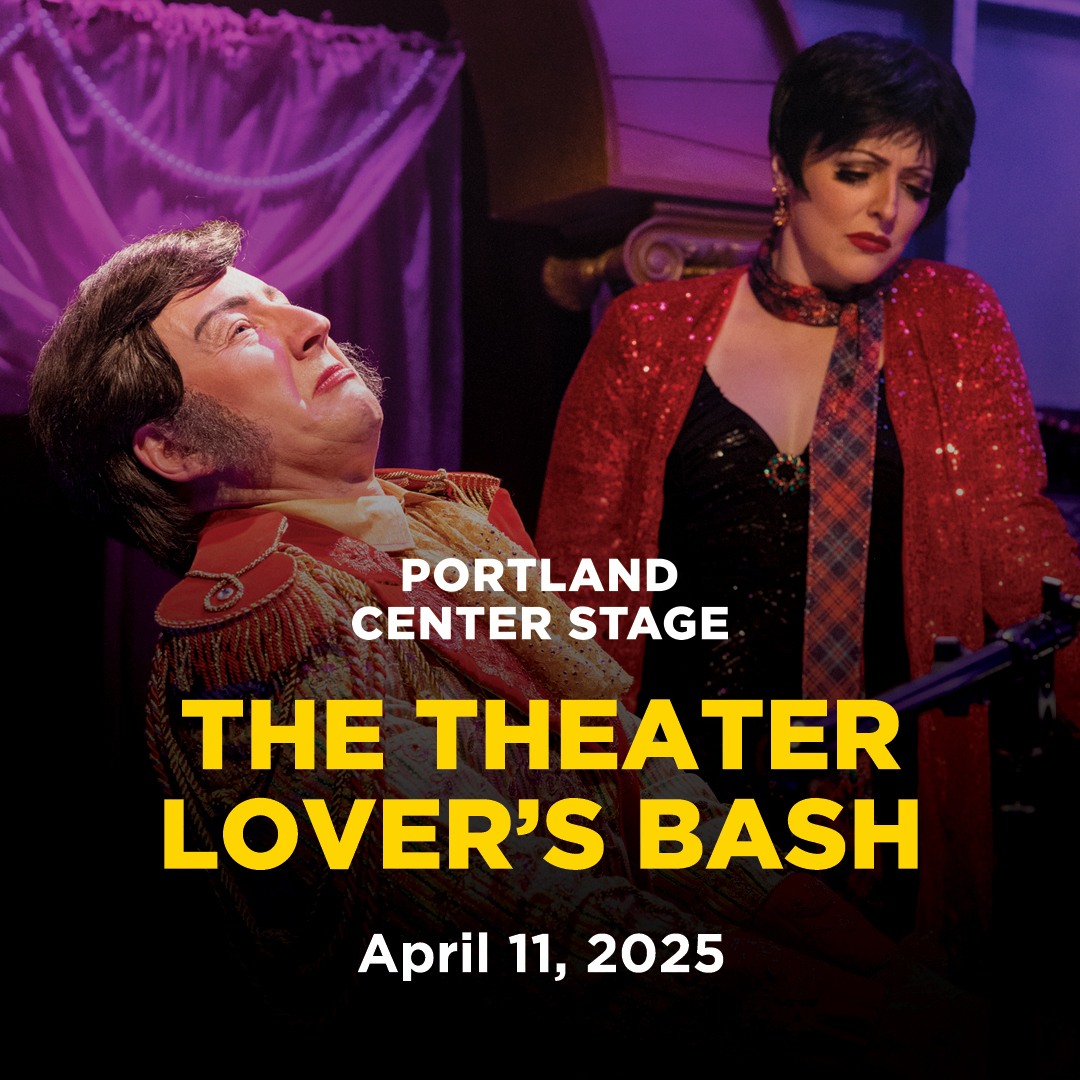Thank You, Jonathan Larson: 25 Years of Rent

From the back of a darkened, silent theater came a call that would echo throughout the decades. It was January 25, 1996. The original cast of Jonathan Larson’s Rent had just finished their first preview of what would become one of the most iconic pieces of musical theater in history and, just that morning, they had learned that the playwright and composer had unexpectedly passed away. That call, after many moments of silence, was: “Thank you, Jonathan Larson.”
More than 25 years later, the world still has Jonathan to thank for his contributions to the living canon of musical theater. Bringing Rent to the stage was several revolutions in one. A rock musical had not been successful since Hair in 1967, the cast was intentionally multi-racial and reached across both gender and sexual spectrums, and in a country whose president would not even utter the word AIDS until thousands had died, this play sought to bring the humanity of those living with the virus into the spotlight. Original cast member Wilson Jermaine Heredia said, “It wasn’t just a phenomenon … it was a political-socio movement that changed lives and changed theater and changed minds. It was an honor to be part of that.”
Heredia and the other cast members saw their own lives indelibly changed by the success of the show. Before being cast as Angel, he was working in a leasing office. Idina Menzel was a wedding singer. Adam Pascal, the original Roger, had never done a play before and only knew about the auditions because Larson and his producing team insisted on posting notices in places like the famed punk rock hub CBGB. Perhaps the newness of it all was what aided in its impact — a young composer leading a cast of rookies at New York Theatre Workshop, which had not developed a musical on that scale before, created lightning in a bottle.
The popularity of Rent even changed the business of theater. Other shows had been phenomena, but the energy surrounding this production was different. Fans, called RentHeads, camped outside of the theater hoping for a chance to buy rush tickets. This policy, which seems so normal to us now, of offering discounted tickets right before the curtain did not exist before Rent. It was important to Jonathan and his family that what he called “The MTV Generation” be welcomed into the theater. He had even picked New York Theatre Workshop as the place to develop his show because it was in the community where his characters, who were based on himself and his friends, lived. When producers realized that many of the people for and about whom the show was written could not afford the nearly $68 ticket, they mobilized and created a system for audiences to buy $20 seats in the first few rows of The Nederlander Theatre. Once producers saw their audiences camping out for days at a time, concerned for their safety, they also developed the lottery system for these tickets — a system we saw become an event for shows like Hamilton’s early Ham4Ham performances.
The fingerprints of this seminal musical are felt all over our culture. In the original production of Hedwig and the Angry Inch, the character Yitzhak wore a Rent t-shirt, the CW show Riverdale features a cover of “Out Tonight,” and a viral remix of “Tango: Maureen” called “Tango: Vaccine” has been used to combat Covid vaccine misinformation. The musical has been performed in 25 languages and in more than 50 countries. In fact, it was the first Broadway musical to open in Cuba after sanctions between the country and the U.S. were lifted. A documentary about that 2014 production, Revolution Rent, became the second major documentary surrounding the musical. The first, No Day But Today: The Story of Rent was released in 2006 to commemorate the adaptation of Rent into a film directed by Chris Colombus and starring much of the original cast.
Though Rent is the recipient of a Pulitzer, four Tony Awards, including Best Musical, and is in the top 10 longest-running shows on Broadway — the legacy of the show is not in its awards and critical acclaim. This show, like its author, survives in the hearts of the people because of the message it carries and the call to action it puts forth. The reminder to measure one’s life in love is one that even 25 years later rings into the souls of all who hear it. The fire lit by Jonathan’s life and his work burns bright, especially now as we know firsthand the fear and loss that the littérateurs he both lived amongst and wrote about experienced in the late 80s and early 90s. In Larson’s own words: “Rent is about a community celebrating life, in the face of death and AIDS, at the turn of the century” — a torch that our own community can carry with them out into these continually uncertain times. Thank you, Jonathan Larson.
If you love Rent, make sure to catch tick, tick … BOOM! this fall, when it kicks off PCS’s 2022-2023 season. Jonathan Larson wrote this autobiographical musical right before he began work on Rent. It has a similarly rocking score and offers a backstage tour to the love and sweat he put into making his Broadway musical dreams a reality.
Portland Center Stage is committed to identifying & interrupting instances of racism & all forms of oppression, through the principles of inclusion, diversity, equity, & accessibility (IDEA).



















